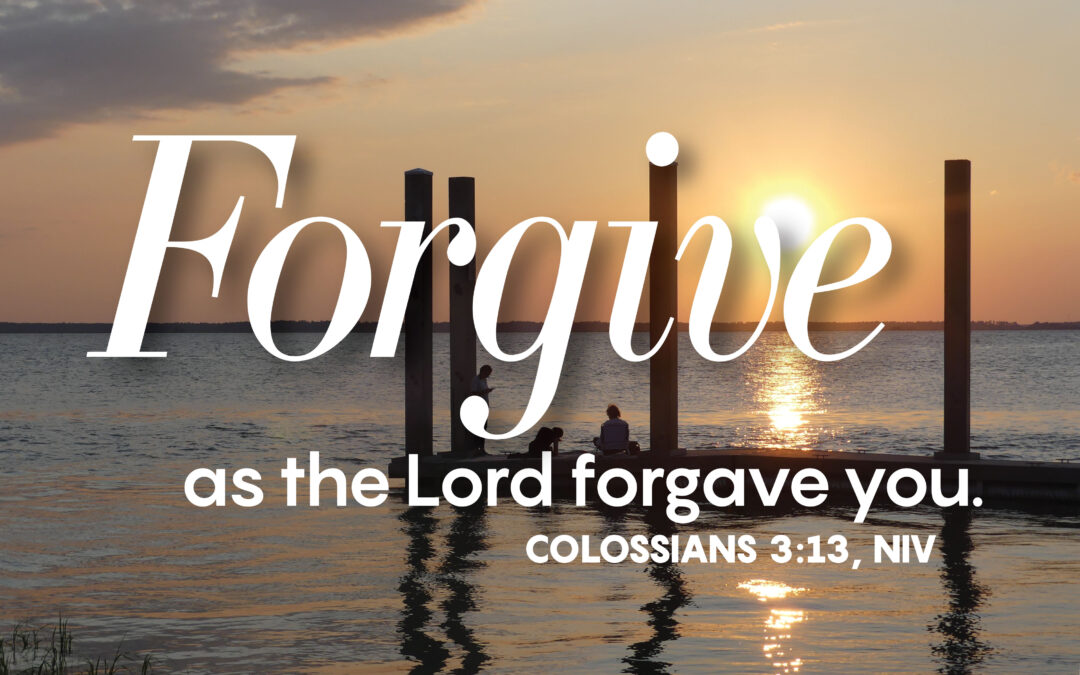Feb 22, 2024 | Mental Health Ministry, Stronger Together Support Group
Hello friends,
If only it were easier to say “I’m sorry.” If we could just be better at apologizing — truly apologizing — think of how much easier it would be to move past conflict, maintain loving relationships, and build trust. Probably there’s a good reason why saying “I’m sorry” is inherently difficult.
If it’s difficult to apologize, does that mean we can get better at it? That’s one of the things I’m hoping to figure out in this week’s conversation! We’ll watch a brief video titled, “A perfect apology in three steps” (it’s only three steps, but that doesn’t mean it’s easy). In it, the speaker talks about how to craft an effective apology, and how this turns us toward a place of gratitude. If you don’t have time to watch the video beforehand, no apology is necessary. 😉
Our warm-up question for this week:
What’s your favorite summer Olympics sport to watch?
See you soon,
Alex

Dec 28, 2023 | Mental Health Ministry, Stronger Together Support Group
Hello friends,
I hope you had a very merry Christmas and, if possible, have been spending lots of quality time with loved ones. I’m enjoying time with extended family here in Georgia, but it’s not all perfectly smooth sailing. It got me thinking: what strategies should we use when time with family challenges our mental health?
I came across this really wonderful article on coping with family dynamics during the holidays. The author recalls a favorite dessert — “The Dysfunctional Family Sundae” — offered at a nearby restaurant:
The Dysfunctional Family Sundae, a blend of three ice creams, brownies, chocolate cookies, whipped cream and sauces (chocolate, butterscotch, and strawberry), all topped with a cherry. This dessert required sharing among multiple friends. The tag line went something like this: all the ingredients are good on their own, but when placed together are sure to elicit indigestion, just like a dysfunctional family. Thus, cope with the dysfunction by sharing with friends.
Fortunately the author also offers more than a dozen practical strategies for preserving (or gaining back) positive mental health when the family sundae brings about distress, gastrointestinal or otherwise. In fact, many of these strategies are great to use for building strong family bonds even if there are no mental health concerns! I look forward to discussing them together as a group this week.
Our warm-up question for this week:
What “TV family” (e.g., The Brady Bunch) is most memorable for you, and why?
See you soon,
Alex

Jun 29, 2023 | Mental Health Ministry, Stronger Together Support Group
Hello friends,
Our conversation this week is about something we all can relate to: being wronged by someone. More specifically, what we do after we’ve been wronged. You probably know where this is going…forgiveness.
We’ve talked about forgiveness before in Stronger Together, but this week we’re going to focus on a particular science-backed strategy called the “REACH” method, which has been shown to make forgiveness a little easier to implement and live with. Here’s a highlight from the linked article:
—
THE REACH FORGIVENESS METHOD
Think about the hardest thing you ever successfully forgave. Remind yourself that you CAN forgive.Rehearse the benefits to yourself of forgiving, and know that forgiveness might help your relationship, if it is safe, prudent, and possible to reconcile.
Work through the five steps to REACH emotional forgiveness.
-
- R = Recall the hurt as objectively as you can.
- E = Empathize with the one who hurt you. Try, if possible, to see things from their viewpoint. If you can’t, use sympathy, compassion, or even love (particularly in romantic relationships) to replace the negative unforgiving emotions.
- A = Altruistic gift of forgiveness. No one deserves forgiveness. Forgiveness is your choice. If you choose to give it, it is an altruistic gift.
- C = Commit to the emotional forgiveness you experience.
- H = Hold on to forgiveness when you doubt that you’ve really forgiven.
Seek to make a decision to forgive, which is deciding not to pay the person back but to treat the person as a valuable and valued person. This is about your intention to treat the person differently.
Try to solidify your forgiveness by applying the REACH steps and making a decision to forgive in several other relationships that are not characterized by full forgiveness.
—
Our warm-up question for this week:
What’s an instrument you wish you could play?
See you soon,
Alex
Apr 5, 2023 | Mental Health Ministry, Stronger Together Support Group
Hello friends,
We have another wonderful installment this week in our series healthy relationships. But we get to that, however, please remember that we’re meeting Wednesday evening at 7 pm since it’s Holy Week!
We’ll be talking about friendships: how they differ from other types of relationships, how powerful they can be in keeping us well, and whether or not there’s a “friendship recession” affecting our communities today.
To understand the issue a bit better, we’ll watch a brief video featuring Richard Reeves, a senior fellow at the Brookings Institution who has studied this topic extensively. It’s the perfect video and topic to share with friends!
Our warm-up question for this week:
Did you have a “best friend” as a child? What was your favorite memory with this friend?

Mar 30, 2023 | Mental Health Ministry, Stronger Together Support Group
Hello friends,
We’re continuing on the theme of healthy relationships this week, this time focusing on trust. While trust in relationships is a very relevant topic for all of us, it can take on new meaning when you are living with mental illness.
To get the conversation started we’ll watch a 10-minute video on the foundations of trust by social scientist and author/speaker Brene Brown. She introduces the acronym “BRAVING” to describe the essential elements of building and maintaining trust in relationships. We’ll discuss how these themes have played out in our own lives, and in particular the challenges we’ve faced when mental illness is involved.
Our warm-up question for this week:
Tell us about a time you laughed uncontrollably. What (or who) made it so funny?


